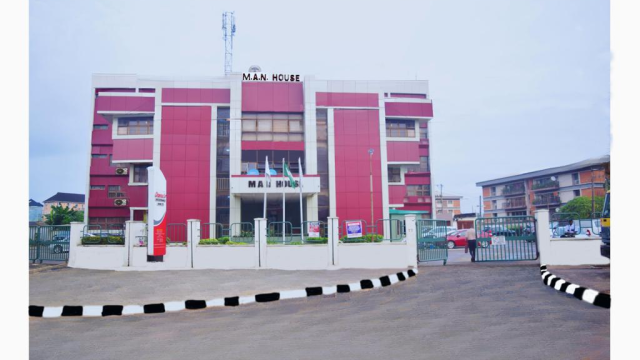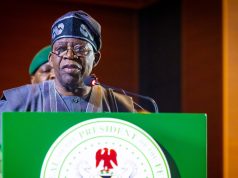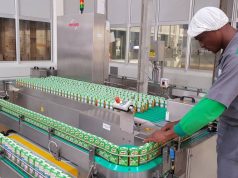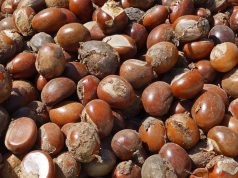The Manufacturers Association of Nigeria has urged the Nigeria Customs Service to suspend the reintroduced 4 per cent Free-on-Board levy on imports until 31 December to allow an impact review and full stakeholder consultations.
In a statement signed by its Director-General, Segun Ajayi-Kadir on Monday, MAN asked Customs to retain the current 1 per cent Comprehensive Import Supervision Scheme fee and 7 per cent cost-of-collection in the interim.
The levy was suspended in February as Customs explained it was phasing out service providers such as Webb Fontaine, previously financed through the abolished 1 per cent CISS.
MAN said the 4 per cent levy, which took effect on 4 August, replaced the 1 per cent CISS and the 7 per cent cost-of-collection with a single charge.
The association said the move came as a surprise after the Federal Government had earlier suspended the levy following broad pushback from industry.
It said the proposed pause to year-end would align with the slated January 2026 start of new tax laws and allow time to design business-friendly guidelines.
Cost impact
The association argued the new structure is more expensive than the old one for most industrial imports.
It noted that the 4 per cent levy is charged on the total value of imports, while the previous 7 per cent surcharge was based on duty payable.
Except for luxury goods or prohibited items with duty rates above 35 per cent, MAN said its analysis shows the 4 per cent FOB levy will generally exceed the combined 1 per cent and 7 per cent charges.
Some members also reported that the 7 per cent surcharge still appears to be applied, further compounding costs.
For high-value consignments such as raw materials and machinery that Nigeria does not produce in sufficient quantities, MAN said the levy would push import costs above the N6.6 trillion recorded in 2024.
It warned the burden would flow through to consumers and stoke inflation, which it put at 21.88 per cent in July.
MAN said comparator economies in West Africa — including Ghana, Côte d’Ivoire and Senegal, keep inspection or collection fees within a 0.5 to 1 per cent FOB range, applying higher charges only to luxury or non-essential goods.
By contrast, it warned that a uniform 4 per cent levy in Nigeria would raise the cost of doing business, encourage informal cross-border sourcing, promote under-declaration and risk cargo diversion.
It said manufacturers are already grappling with a weak naira at over N1,540 to the dollar, an alternative energy bill above N1.1 trillion in 2024 and average interest rates above 35 per cent.
Under these conditions, it said, a blanket 4 per cent charge is not industry-friendly and is at odds with development goals.
Platform glitches
Beyond pricing, MAN flagged prolonged glitches on the B’Odogwu platform that have slowed cargo clearance “to a comatose state”.
Members, it said, are incurring demurrage and suffering factory stock-outs.
MAN welcomed assurances from Customs leadership that fixes are underway but said problems persist and hardship is mounting.
The association added that B’Odogwu is not properly integrated with other agencies.
It cited the Standards Organisation of Nigeria Conformity Assessment Programme (SONCAP) as an example, saying importers still need to visit Customs Commands to upload documents a manual process that fuels delays, inefficiency and rent-seeking.
MAN said Customs did not adequately consult major stakeholders before reintroducing the charge and issued no clear guidelines on processes, procedures, costs or compliance.
It also faulted the absence of a proper assessment of the levy’s impact on inflation, the cost of living for about 230 million Nigerians, the manufacturing sector and the wider economy.
ALSO READ: Nigeria Customs suspends 4% FOB import charge amid consultations
The association argued the measure runs counter to the government’s Renewed Hope Agenda, the National Development Plan 2021–2025 and ongoing industrial policies that aim to cut local production costs, deepen value chains and diversify the economy.
By raising import costs on essential industrial inputs, it said, the levy undermines those goals.
Requisition
MAN asked the Federal Government and Customs to halt the 4 per cent levy immediately and set a 31 December deadline for an impact study and inclusive consultations to determine a charge level that supports Customs’ efficiency without penalising industry.
It urged Customs to keep the 1 per cent CISS plus 7 per cent cost-of-collection until then, arguing that this balance protects revenue while preserving competitiveness.
The association called for a structured forum with MAN and other organised private-sector groups for regular dialogue on trade facilitation and customs issues.
It urged Customs to prioritise facilitation over revenue and to show “empathy” to stakeholders, saying a thriving manufacturing base ultimately yields sustainable tax receipts, jobs and wealth.
“The sector is struggling and currently shrinking,” Mr Ajayi-Kadir said.
He said Nigeria’s future depends on ramping up production, boosting exports and attracting steady foreign exchange and investment, goals that require removing barriers to industrial performance and deploying targeted interventions.
MAN concluded that suspending the levy to year-end, fixing the B’Odogwu platform, integrating systems with other agencies and consulting widely would move policy back in line with national development plans, and give factories breathing space while durable rules are designed.









